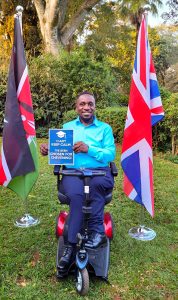 Anai Salazar
Anai Salazar
MSc International Development, University of Bristol
‘Make sure your Chevening Application essays have substance to them. Don’t be afraid to show who you are (your life story, challenges, setbacks) and highlight how your leadership, networking, and learning skills have been relevant throughout your life.
A good reference letter goes a long way! These letters should reflect why you would be a good fit for Chevening. I’d recommend asking people who know you in both an academic and professional capacity to write a reference letter.’

John Michael Orimbo
MA Education (Inclusion and Disability), University of Birmingham
‘I started by clearly defining my long-term goals and how they align with Chevening. Make sure to showcase your passion, motivation, leadership potential and your commitment to creating a positive impact in your workplace and community.
Also ensure that all elements of your application are a true reflection of your stories and aspirations.’
 Simin Ibnat Dharitree
Simin Ibnat Dharitree
MA Gender and Development, University of Sussex
‘When writing your essays, take some time to think about the stories you can use from your life or experiences that align with the essay topics. Personal examples always helps to make your writing genuine and real.
Take your sweet time to read and re-read your essays. The more time you take the better your essays get. So start writing early, don’t wait until the last minute!’
 Faith Fao
Faith Fao
Master of Public Health, University of Glasgow
‘My top tip is to extend grace to yourself by believing you deserve the award. A positive mindset goes along way during this process!’
Applications for Chevening Scholarships are open until 7 November 2023. Don’t wait until the last minute to submit your application – apply today!





 Simin Ibnat Dharitree
Simin Ibnat Dharitree Faith Fao
Faith Fao
